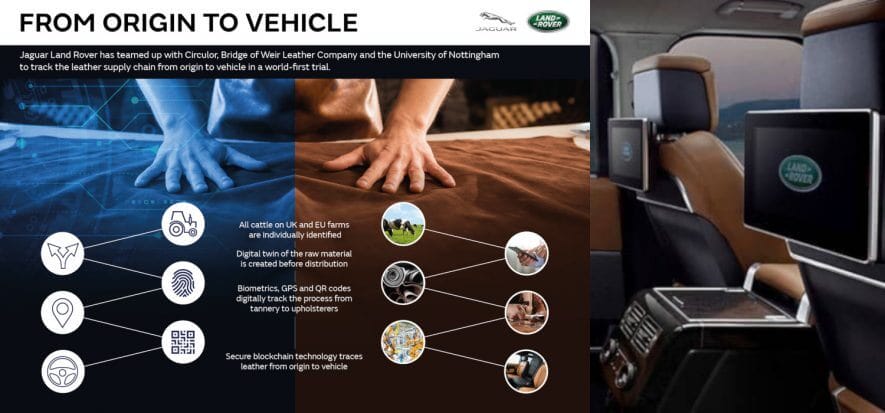At the moment the project is still in experimental phase. But Jaguar Land Rover (JLR) is testing the use of blockchain to trace leather and guaranteeing transparency of the consumers’ chain. This is how the carmaker answers the marketplace, which asks the entire industry to improve environmental performances. And, in a way, also to Volvo, which has recently chosen to take a different approach and cut leather completely from its production: discriminatory and difficult to comprehend. Collaborators of Jaguar Land Rover in the initiative are Circulor and Bridge of Weir, as well as Nottingham University.
Jaguar Land Rover’s transparency
JLR has added the project to its 2039 carbon footprint reduction plan. The blockchain technology, using GPS data, biometrics and QR codes, “splits” the trip of all individual leather pieces, from purchase to its use inside vehicles, within a digital registry. This way, they can verify all the supply chain steps that bring the material to be transformed. Financially supported by Innovate UK (British innovation agency), the tracking model is applicable, say creators, on global scale and in all manufacturing industry that uses leather.
Sustainable idea
JLK has a sustainability strategy (Reimagine) which includes materials (not just leather), but also includes other aspects of the industrial process. The goal is to reach a “modern luxury” that isn’t just green and technological, but that also has a positive social impact. A plan that, at least so far, is more complex and forward looking of the draconian one implemented by Volvo.
Read also:











